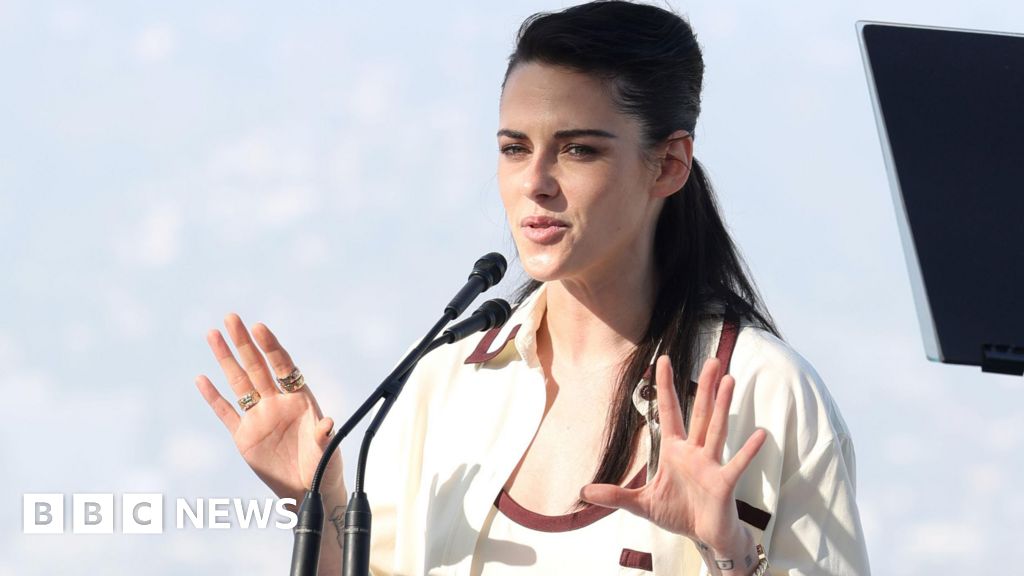Kristen Stewart 'so angry Hollywood has gone backwards' for women

Kristen Stewart Voices Anger Over Hollywood's Retreat on Female Filmmakers
Kristen Stewart has sharply criticised Hollywood, stating she is "so angry" about the perceived backsliding in progress for female filmmakers after an initial boost following the #MeToo movement. The actress and director delivered a passionate speech at a luncheon hosted by the Academy of Motion Picture Arts and Sciences in Los Angeles, highlighting a decline in the number of films directed by women in recent years.
"The backsliding from a brief moment of progress is statistically devastating," Stewart told the audience, which included prominent figures like Sarah Paulson, Julia Louis-Dreyfus, and Tessa Thompson. "Such a pitiful number of films from the past year have been made by women."
Decline in Female-Directed Films
Stewart's remarks come as industry data reveals a concerning trend. The Celluloid Ceiling report, an annual study tracking the representation of women in film, indicates a decrease in female directors at the helm of top-grossing movies. In 2024, only 11 of the top 100 grossing films were directed by women, a decrease from the 16 films directed by women in 2020.
This decline raises questions about the long-term impact of the #MeToo movement, which in 2017 sparked a widespread reckoning regarding gender inequality and power dynamics within the entertainment industry. While 2018 saw a low of only four female-directed films in the top 100, the subsequent increase to 16 in 2020 suggested a positive shift. However, the latest figures indicate that this progress may have been short-lived.
"Boys' Club Business Model" Under Scrutiny
In her speech, Stewart articulated the challenges faced by female filmmakers attempting to tell authentic stories. "In a post-MeToo moment, it seemed possible that stories made by and for women were finally getting their due," she said. "But I can now attest to the bare-knuckle brawling that it takes every step of the way when the content is too dark, too taboo, when the frankness with which it serves up observations about experiences routinely experienced by women, frequently provokes disgust and rejection."
Stewart further criticised what she described as a "boys' club business model," accusing the industry of tokenism and resource siphoning. "I am not grateful to a boys' club business model that pretends to want to hang out with us while siphoning our resources and belittling our true perspectives," she stated, urging for a shift towards greater female empowerment and economic independence within the industry.
Expert Perspectives on the Issue
Dr. Amanda Reyes, a film historian specialising in gender representation in Hollywood, notes that cyclical patterns of progress and regression are not uncommon. "Historically, periods of heightened awareness around gender inequality often lead to initial gains, followed by a pushback as established power structures reassert themselves," Dr. Reyes explains. "The key is to maintain sustained pressure and advocacy to prevent these cycles from repeating."
Adding to this, film industry analyst Paul Dergarabedian points out the economic factors at play. "While there's a growing recognition of the importance of diversity, ultimately, studios are driven by profit," says Dergarabedian. "Films directed by women need to consistently demonstrate their box office potential to overcome ingrained biases and secure greater investment."
The Road Ahead
Despite the challenges, there are still female-directed films in contention for awards this year, including projects from Chloé Zhao, Kathryn Bigelow, and Mona Fastvold. However, concerns remain that the Best Director category at the upcoming Oscars will predominantly feature male nominees.
Stewart's impassioned plea serves as a reminder that the fight for gender equality in Hollywood is far from over. While the #MeToo movement brought about some positive changes, sustained effort is needed to ensure that women have equal opportunities to tell their stories and shape the future of the film industry.
Historical Context of Women in Film
The struggle for women in film has a long history. From the early days of cinema, women have faced systemic barriers to entry and advancement. While some pioneering female directors like Alice Guy-Blaché made significant contributions in the silent era, their work was often overlooked or attributed to men. Throughout the 20th century, women were largely relegated to supporting roles both in front of and behind the camera. The rise of independent cinema and the feminist movement in the 1960s and 70s created new opportunities for female filmmakers, but true parity remains elusive.
Originally sourced from: BBC Entertainment
